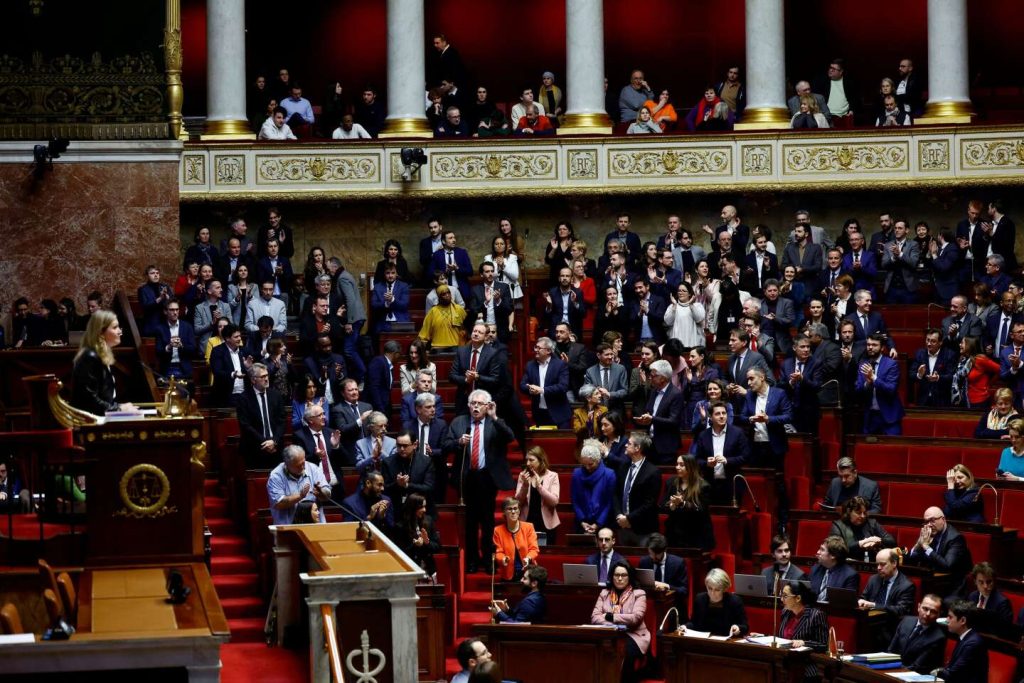On May 31st, deputies from La France Insoumise (LFI) and Rassemblement National (RN) filed motions of censure against the government, which are set to be debated on Monday at 1:30 p.m. at the National Assembly. The chances of their motions succeeding in bringing down the government are slim. La France Insoumise was the first to submit their motion, co-signed by the Communists and environmentalists. With 106 left-wing signatories, they are challenging the implementation of unprecedented austerity measures that are deemed socially unbearable and fiscally ineffective, particularly following the freezing of €10 billion in credits for 2024 due to deficit overruns.
The left also denounces the additional freezing of €10 billion that the government aims to cancel before the end of the year. The Socialist Party’s first secretary Olivier Faure confirmed that they did not sign the motion but will vote in favor of it. The RN, which later submitted its own motion, will vote for LFI’s motion in an attempt to overthrow the government, as announced by Marine Le Pen. However, without the support of LR, the censure attempt is unlikely to succeed. The RN’s motion accuses the government of intentionally underestimating the deficit and highlights that public debt has reached a critical point. However, given that the left does not intend to support it, the RN’s motion poses no real threat to Gabriel Attal’s government.
LFI and RN had indicated that they would file a motion of censure in the absence of a supplementary budget law, criticizing the executive branch for not submitting its budget cuts to Parliament for approval. A censure motion requires an absolute majority of 289 votes to overturn a government. The motions submitted by LFI and RN are seen as symbolic gestures challenging the government’s fiscal policies, particularly in light of the upcoming European elections. The left-wing deputies are using the motions as a platform to voice their opposition to what they see as harmful austerity measures, while the RN is attempting to capitalize on growing discontent with the government’s handling of the economy.
The debates surrounding the censure motions are expected to focus on the government’s economic policies, its handling of the deficit, and the impact of austerity measures on the populace. The left accuses the government of prioritizing fiscal austerity over social welfare, leading to increased hardship for vulnerable populations. The RN, on the other hand, criticizes the government for failing to address the worsening debt crisis and for misleading the public about the true state of the economy. Despite the unlikely success of the censure motions in toppling the government, they serve as a platform for political opposition to voice their concerns and criticisms.
The motions of censure highlight the deepening political divisions in France, with the left and the far-right banding together to challenge the centrist government’s economic policies. While the chances of the motions succeeding are slim, the debates in the National Assembly will provide a platform for both sides to air their grievances and present alternative solutions. The government’s response to the censure motions will be closely watched as public opinion on economic policy continues to influence political discourse in France. Ultimately, the outcome of the debates will shed light on the effectiveness of censure motions as a tool for political opposition in the French parliamentary system.


